Since the start of the coronavirus outbreak, we’ve been encouraged to act as if we have the virus ourselves. Now that countries are opening businesses and allowing citizens to go back to work, it’s become more important than ever to heed basic health precautions, such as wearing a face mask, regularly washing and sanitising your hands, and practising social distancing.
That’s why it’s so frustrating to scroll through the news and watch some people live as though the last few months never mattered to them. Crowding bars and nightclubs, jogging in the streets without face masks, refusing to line up properly at the grocery stores. Some people have even gone as far to throw “coronavirus parties,” limiting their social media posts to only their close friends so that no one else can witness their selfishness.
We understand that after months of self-isolation, everyone is raring to go outside and celebrate. But a little cabin fever doesn’t give anyone a reason to compromise other people’s lives, or carelessly violate the protocols that are supposed to keep us safe and prevent a second spread from occurring — just in case you forgot that we’re grappling with a lethal pandemic here. Not wearing a face mask and ignoring social distancing can bring fatal consequences, and if you don’t see that, let this be a wake-up call.
Also read: 8 Most Insensitive Things Travellers Do During a Global Pandemic
1. COVID-19 is still highly contagious
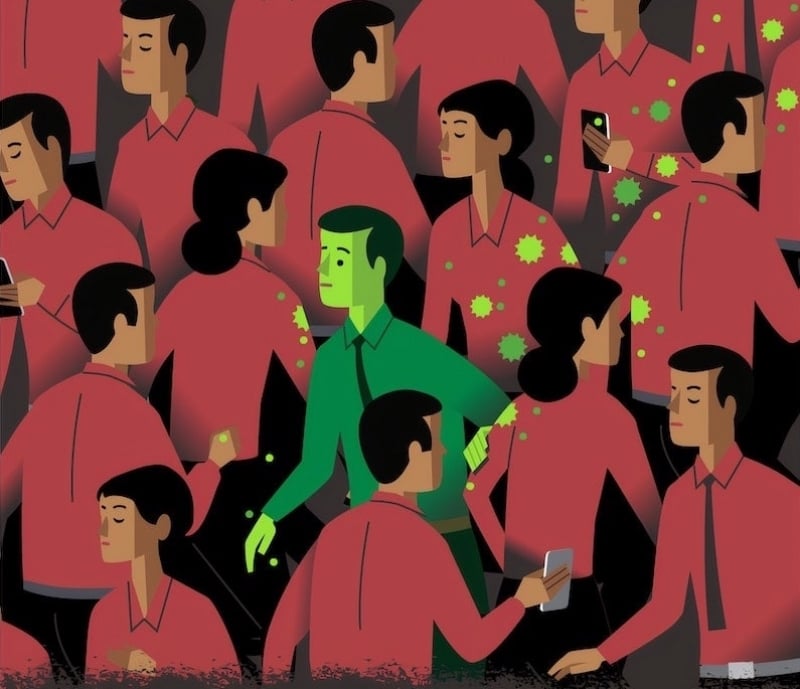
COVID-19 (represented as green shapes) being transferred from an ill person to other people | Image credit: Russell Tate for United Nations COVID-19 Response
All it takes is a couple of reckless people going on a pub crawl or partying it up in an Airbnb to undo the progress we’ve made to beat the coronavirus in the past months. We’re still dealing with an unseen enemy that is highly contagious. If we don’t take social distancing seriously, we run the risk of contaminating others or getting infected with the virus ourselves.
According to the U.S. Centers for Disease Control and Prevention (CDC), “Social distancing is an essential step in preventing the spread of COVID-19.” As many of us know, the coronavirus spreads through droplets that scatter in the air when an infected person sneezes, coughs, or talks. That’s why people who come into close contact with others are more likely to catch the virus.
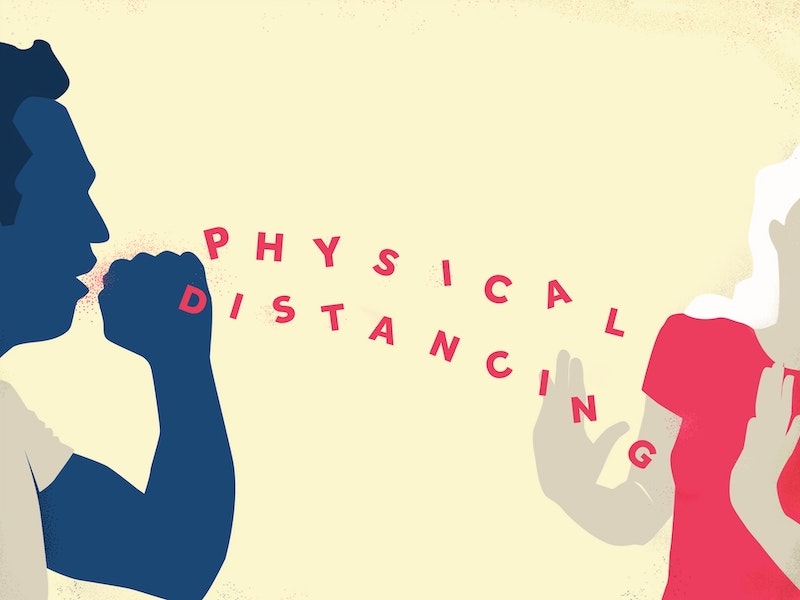
Physical distancing | Image credit: Kyle Mueller for United Nations COVID-19 Response
Consequently, we must stay at home as much as possible; or maintain a safe distance of at least 2 metres apart from other people when we choose to go outside. Dismissing the threat of a pandemic that has already claimed over half a million lives across the globe is something we can’t afford — not when the death toll climbing in many countries reminds us how easily it can all go south once again.
2. You never know whose life you may be putting at risk
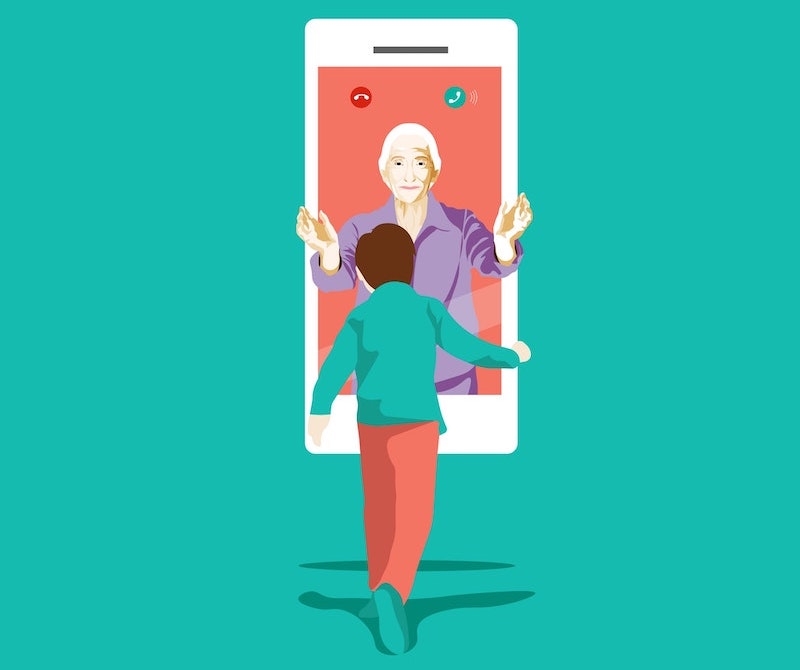
Maintaining close bonds with family members with social distancing | Image credit: Nubefy Design for United Nations COVID-19 Response
You only live once, some people say. Others go as far as to be nonchalant about their mortality: If I’m going to suffer in this pandemic, then I might as well have some fun first. But it’s not just your life at stake, is it?
Even if you might not be at risk of catching the virus, you could be a healthy carrier and transmit the virus to a person with underlying medical conditions. Without knowing you have symptoms at all, you might infect someone’s aging parent or grandparent — forcing them to spend their last moments on a ventilator without being able to say goodbye to their loved ones in person.
Some patients have reported severe chest pain, high fever, and lasting respiratory difficulties; others, the loss of their senses of taste and smell. Before you step outside without a mask, think: Is it really worth putting someone else’s life in danger?
3. Getting the virus can leave life-long traumatic effects on others
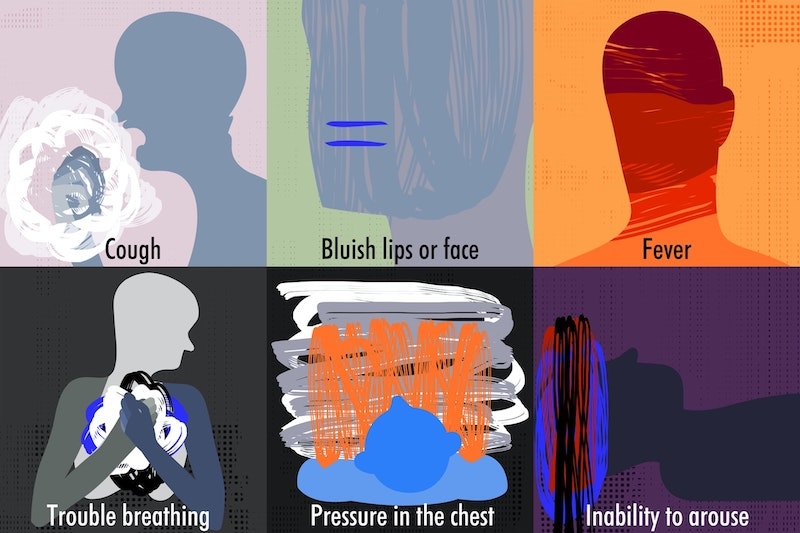
The symptoms of COVID-19 | Image credit: Lu Cheung for United Nations COVID-19 Response
Due to the health complications and lingering effects, COVID-19 is not something that you wish your loved ones to experience in their lifetime. You could be fine one morning, only to wake up the next day with chills, trouble breathing, and an intense fever that makes you feel as if your entire body is shutting down.
Aside from the physical damage to your body, the psychological distress of catching the virus can be just as debilitating. You don’t know how long your recovery will take or how badly your bodily systems will be affected by coronavirus even when you do recover. Further adding to the stress is the uncertainty of not knowing whether you will make it through the experience alive.
Moreover, not everybody can afford to pay for adequate healthcare if they get sick. By sending another person to the intensive care unit, you could potentially bankrupt their family or cripple them financially for life. We don’t normally think of these consequences when we’re choosing to wear a mask or practise social distancing, but we really should.
4. Not wearing a mask or social distancing can mislead people
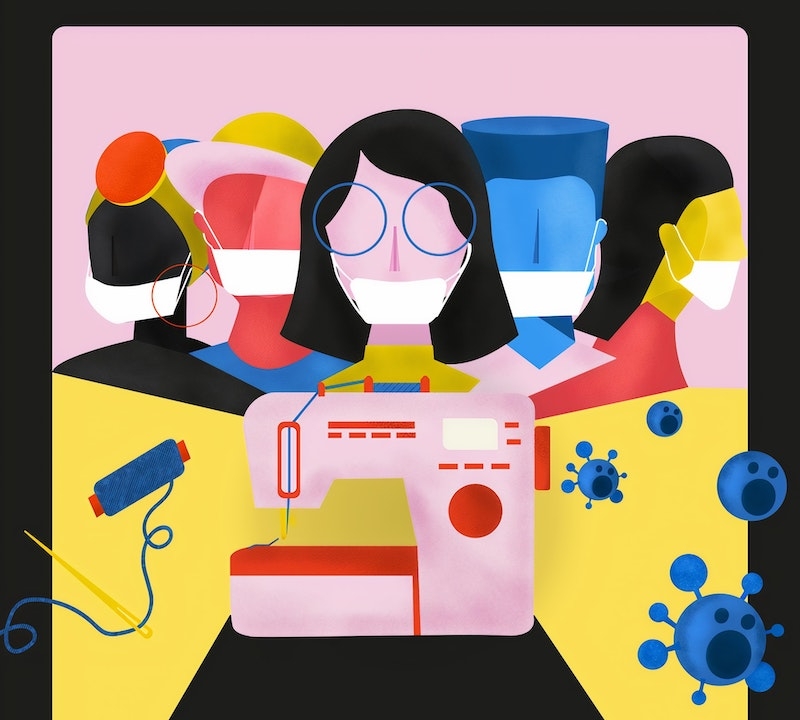
Making masks for those in need | Image credit: Guilherme Santiago for United Nations COVID-19 Response
Every time a celebrity uploads a photograph that shows them not wearing a mask or holding a private party, it sets a dangerous precedent for others to do the same. Lulled into a false sense of security, people grow complacent: They assume that they, too, can start walking around without a mask, as if there isn’t an outbreak still underway.
Ignoring social distancing guidelines and refusing to wear a mask can send the wrong message to others that hey, maybe we can take this global pandemic lightly, too! When in reality, we are far from being safe enough to encourage this risky and negligent behaviour in others.
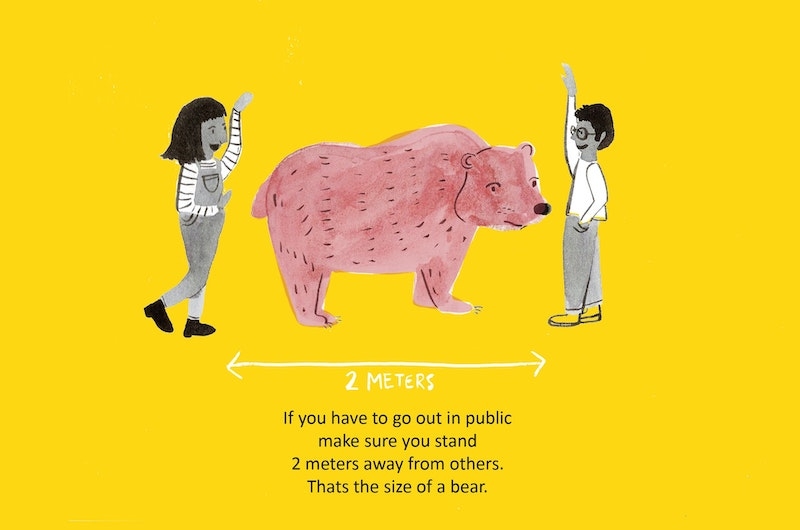
Social distancing with the 2-metre rule | Image credit: Lydia Christine for United Nations COVID-19 Response
Right now, the world is attempting to establish a sense of normalcy around the virus. To keep more infections from spreading, it’s more important than ever to set a good example on how to protect ourselves and others from COVID-19.
5. Other people’s lives are worth more than your personal comfort
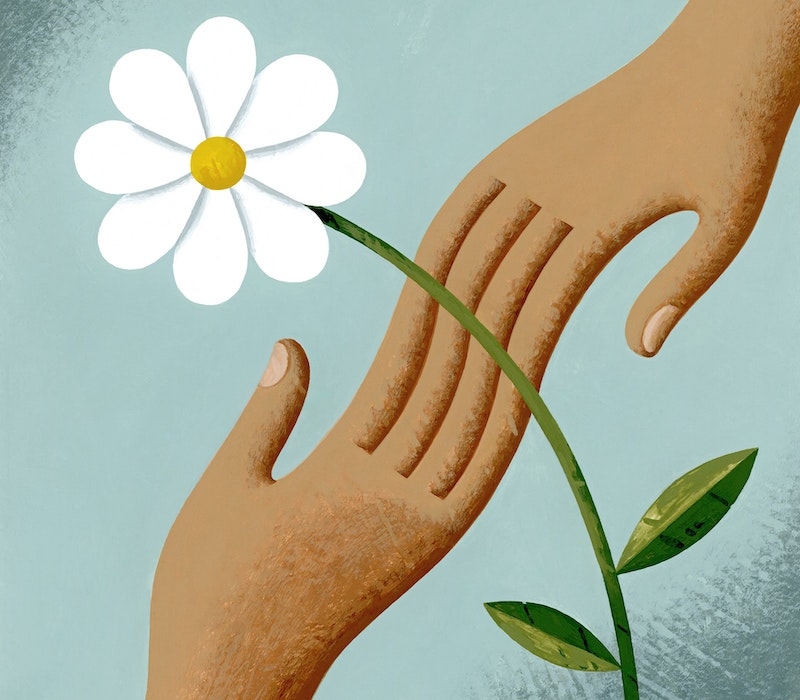
Showing kindness and compassion to others | Image credit: Adam Niklewicz for United Nations COVID-19 Response
Everyone misses their old indulgences. Watching movies at the cinema, hugging a friend, grabbing an overpriced latte at a neighbourhood café and enjoying the ambience, despite not actually getting any work done — we know how you feel. We miss all of that too: the shape of what our lives used to be.
Here’s the thing, though. Many workers have no other choice but to return to the workplace to earn a living and feed their families. Just to be clear, they are not there because they believe that your craving for your go-to dish at your favourite restaurant is worth exposing themselves to the virus. Given the choice and the privilege to do so, they might actually prefer it if they could shelter at home and wait out the pandemic.
But because they’ve been sent into the field for economic necessity, or their livelihood doesn’t allow them to work from home, they are now forced to brave the risks of providing essential services. Not wearing a mask and avoiding social distancing in their vicinity means that you’re willing to gamble with their lives and your own. By disobeying social distancing norms, you’re declaring to everyone watching that you don’t really care about their wellbeing, and their safety isn’t worth prioritising over your comfort.
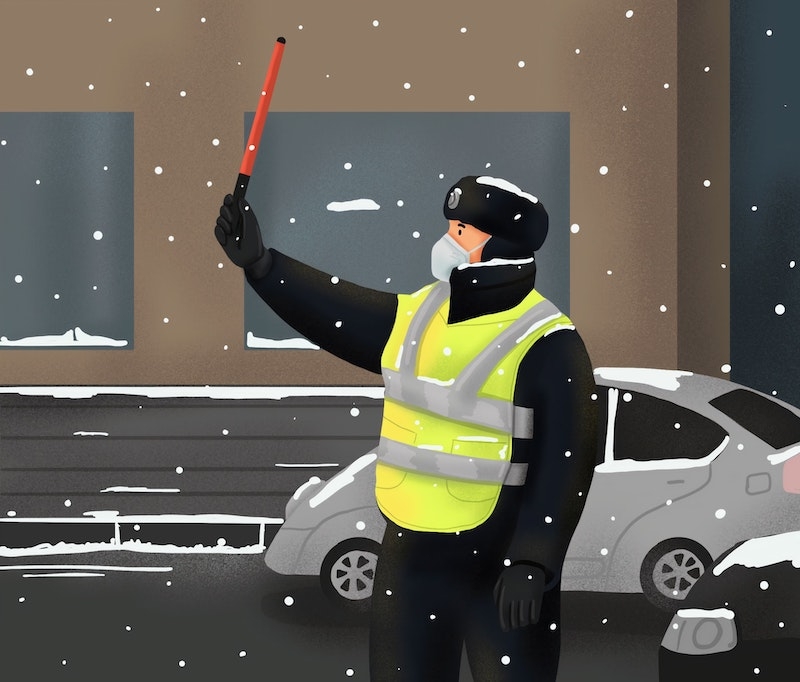
Respect people who are working hard in tough times | Image credit: Binderiya Sanduijav for United Nations COVID-19 Response
If you struggle to breathe normally with a mask on, we have a few helpful mask-wearing tips that might ease your difficulties. Otherwise, it’s really a no-brainer to show compassion to the vulnerable members of our society.
Even if it irks you to wait in long grocery lines or keep sanitising your hands every time you venture outside, your leisure can never justify the risk of spreading the virus to the essential workers who are striving to create this “new normal” for us — a world that is a little more liveable than the one we woke up to several months ago.
6. It belittles the efforts of health workers and frontliners
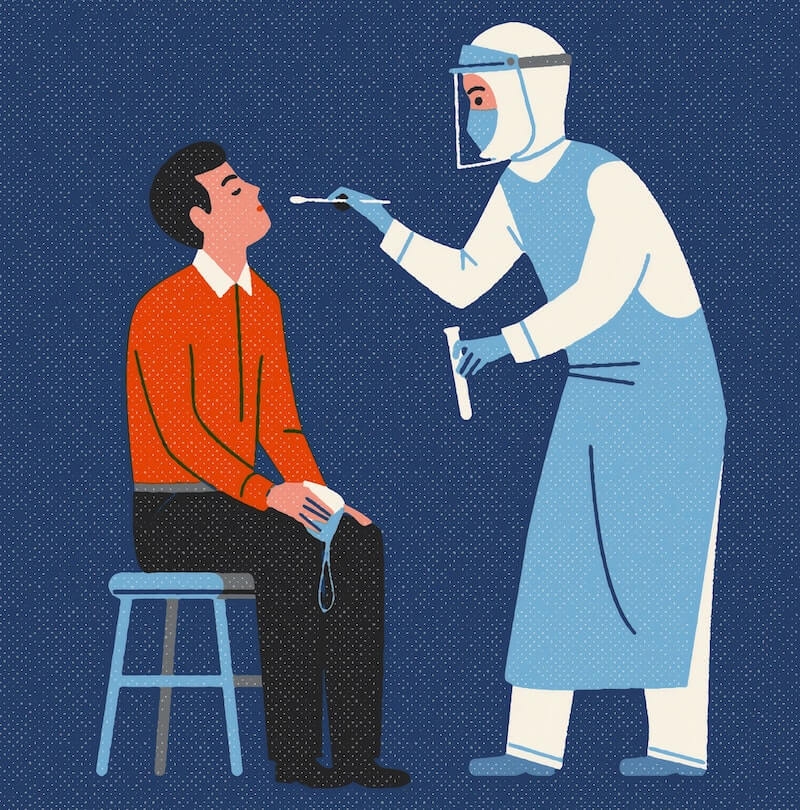
A patient and a health worker preparing for a COVID-19 nasal swab test | Image credit: Russell Tate for United Nations COVID-19 Response
Refusing to wear a mask not only endangers other people’s safety, but it also cheapens the sacrifices of our frontliners. You can’t claim to support health workers, clap for their bravery, and call them heroes — only to undermine everything they’ve worked for by intentionally exposing yourself to COVID-19.
Many medical workers have suffered horrific levels of stress, risked possible contamination, and even faced discrimination just to care for the sick. If we can claim to have any sense of stability today, it’s because of their tireless commitment to saving lives. Therefore, the best way to support frontliners during this crisis is to make sure that we don’t overwhelm our hospitals by sending more people to them.
We can’t let the blood, sweat, and tears of our frontliners go down the drain. If we really want to honour those out in the field, then we need more concrete action than hollow gestures with no follow through. Part of our civic responsibility means putting on our face masks.
Also read: An Open Letter to Frontliners — We Stand With You
7. Following the proper safety measures is the least that we can do
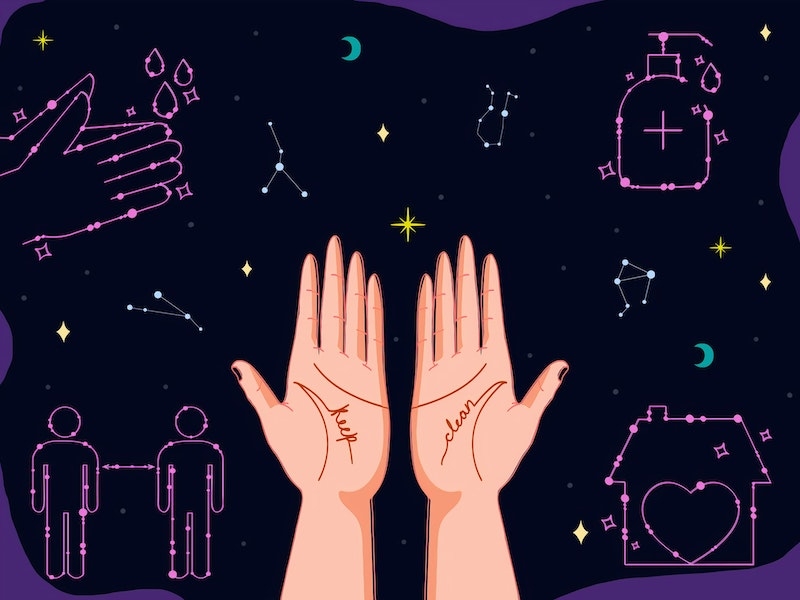
Follow health measures by keeping hands sanitised and social distancing | Image credit: Akanksha Srivastav for United Nations COVID-19 Response
When the World Health Organization (WHO) declared a global pandemic, many people despised the fact that they could be locked in their homes for weeks. It took many preventive measures just to allow us to go outside the way we can today. What was all of that trouble for, if we’re just going to disregard health regulations now?
Wearing a mask and following social distancing guidelines is the least that we can do to curb the spread of the disease. We can’t stop the coronavirus through our own willpower, but we can do our part to prevent big clusters of infections that will put everyone’s lives in peril.
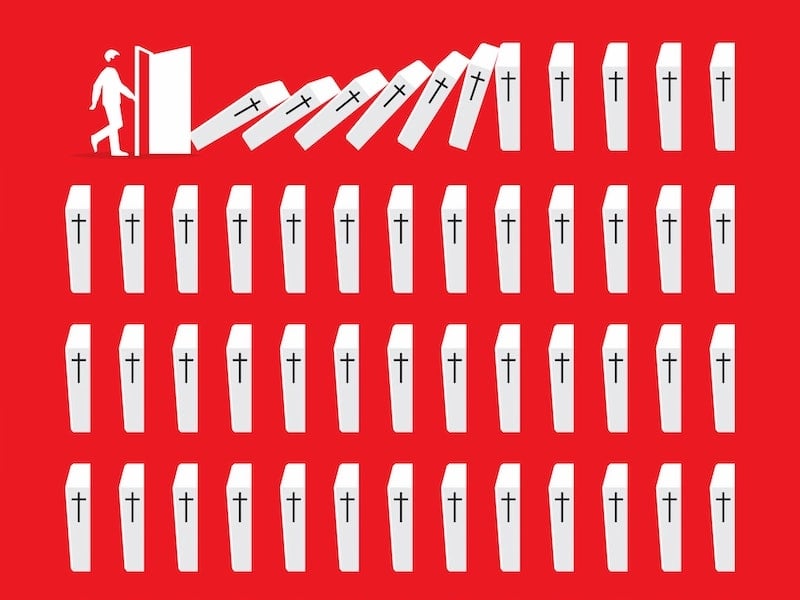
Avoid spreading the virus to others by staying home | Image credit: Barış Cihan Peşmen for United Nations COVID-19 Response
If you know that your actions could potentially send another person to the ICU and jeopardise their life, then you know that adhering to health precautions is the smart and sensible thing to do. More than that, it’s the compassionate thing to do.
8. This is the new normal, whether we like it or not

Balcony concerts showing solidarity, generosity, and creativity with social distancing | Image credit: Catherine Cordasco for United Nations COVID-19 Response
Mankind has survived deadlier pandemics before. It’s true. Still, it’s genuinely baffling — and frankly, a little absurd — to see people behave as if we’ve conquered the pandemic right now, especially when news reports from South Korea to Australia prove that we still have a long way to go in eliminating the virus for good.
Until a vaccine is introduced to the world, we can expect incremental shifts in lockdown measures as countries evaluate their coronavirus situation and adjust their public health strategies in order to respond according to what will benefit their citizens. Even countries that have beaten the coronavirus are not going to reopen every area of social life all at once.
In short, we’re in this for the long haul. Wearing a mask and using social distancing techniques aren’t just health guidelines. They’re norms. And they’re necessary to stave off a second wave of the outbreak that could claim even more lives to come.
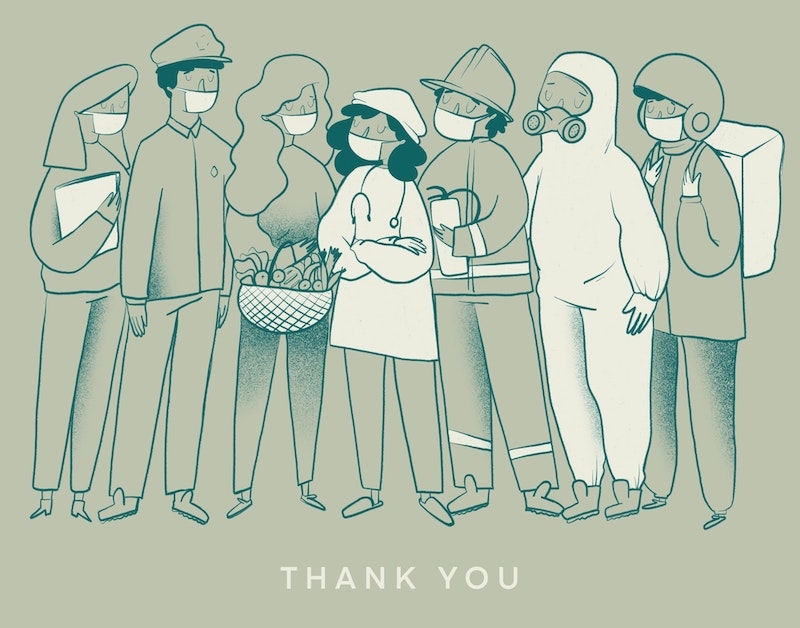
Frontliners in the battle against COVID-19 | Image credit: Vanessa Santos for United Nations COVID-19 Response
At the end of the day, wearing a mask and practising social distancing will only work if we all participate. If not for our own safety, let’s think about what we owe to the people who have worked so hard to give our planet a future that’s worth fighting for.
So, please. Kindly put on that face mask.
Featured image credit: Laura Makaltses for United Nations COVID-19 Response | Unsplash




